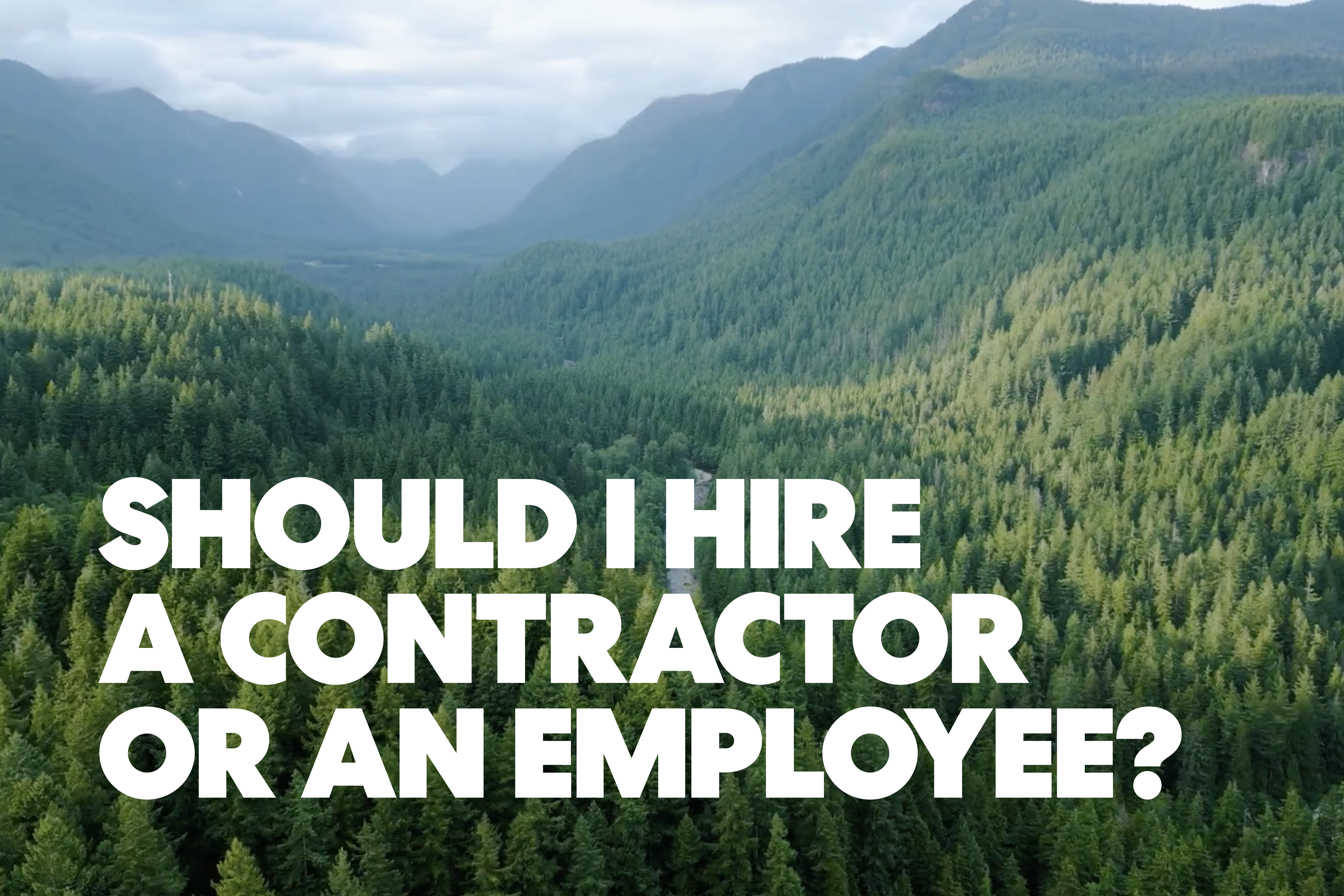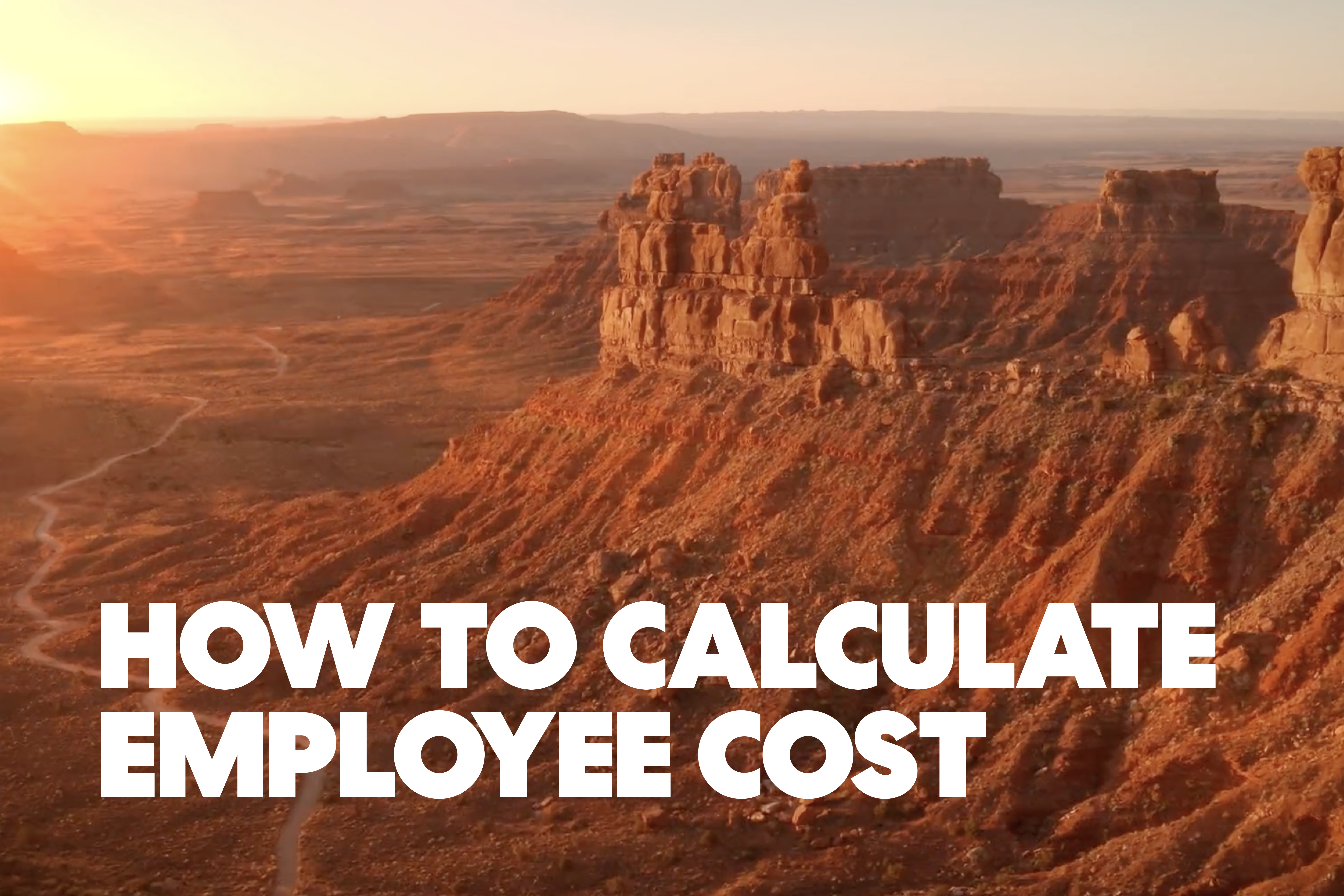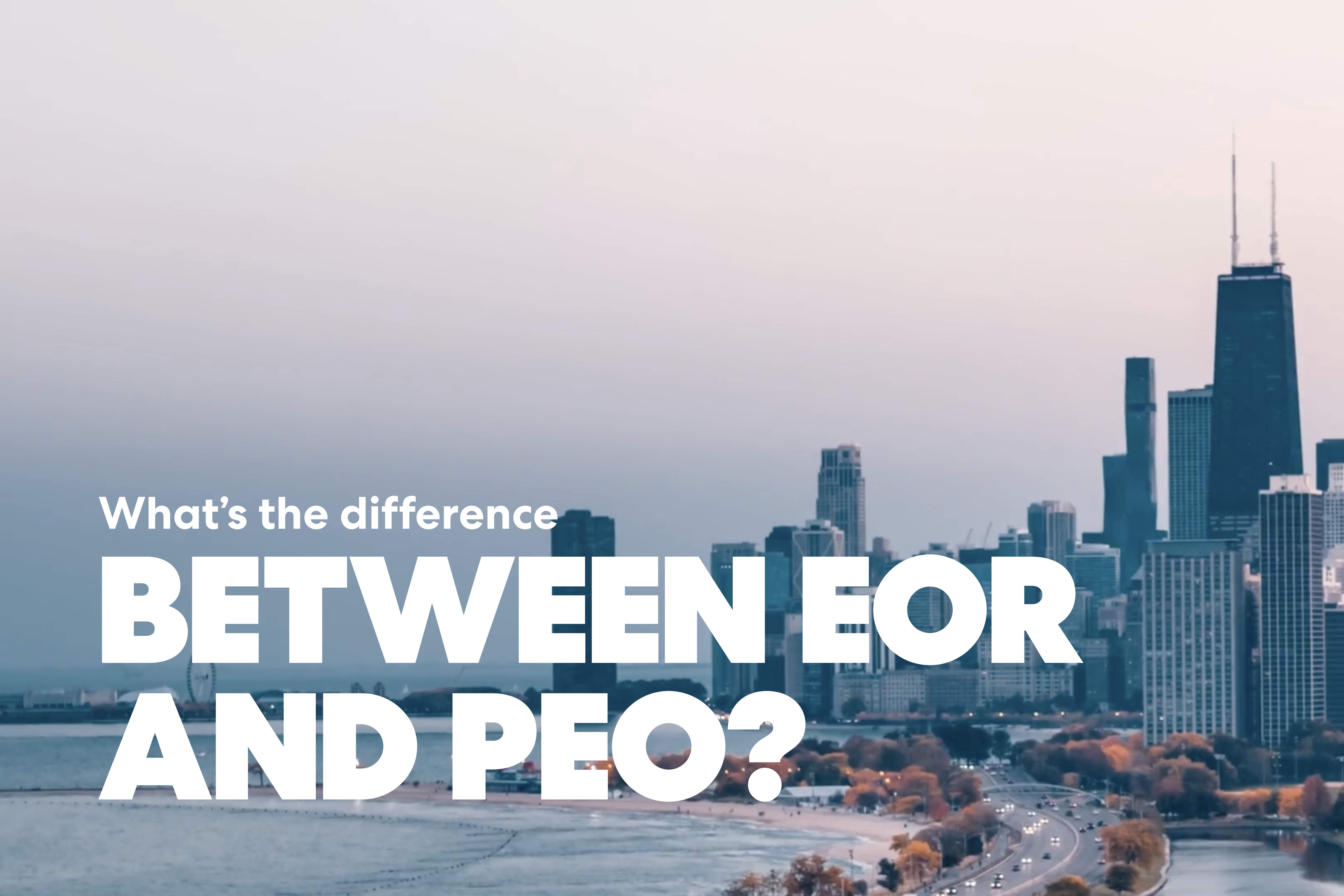All you need to know about EOR
Dive into what an EOR manages, such as onboarding, payroll, benefits, and more. Plus, the advantages of partnering with an EOR to handle administrative tasks and global workforce compliance.
-
Video Summary
“EOR” stands for employer of record. If you’ve never heard of one, this is a solid intro that will give you an understanding of how an EOR can serve as the legal employer of an international workforce. You’ll learn how EOR acts as a bridge between you and your overseas staff to ensure compliance, as well as when you should use an EOR and how to choose the right EOR provider for your needs.
-
Transcript
International hiring is a complex undertaking and it can be tough to know the best solution when, say, you’ve found a great candidate, but they just so happen to live in another country.
Or your company is going through a growth spurt and you need to scale your local workforce to an international team—and quickly.
I’m Ashley with Velocity Global. I’m here to arm you with key knowledge and tools that will be a game changer for your international hiring strategy.
Chapter
In This Video
In this video, we’ll answer questions like, how does an EOR work? When should you use an employer of record? And how do you choose the right EOR provider for you?
So, what is an EOR?
EOR stands for employer of record. Simply put, an employer of record is the legal employer of your international workforce and handles all the administrative HR tasks related to employment.
It’s a solution that allows you to grow where you need to without a lot of headaches.
When you engage an employer of record, your international employees are technically employed by your EOR partner, not your company. This means they handle administrative tasks like onboarding, payroll, benefits, time-off requests, and ensuring compliance with local labor laws and tax regulations.
Let’s say you want to hire Anna in Sweden, Alejandro in Peru, and Eun in South Korea.
Each of these countries has different requirements and protections for their employees.
The EOR acts as a bridge between you and your overseas staff, ensuring compliance in these regions. And though the employee is legally employed by the EOR, they still function as a normal part of your team. Now that we understand what an employer of record is
Chapter
When to use an EOR
and how it works, we need to consider when using an EOR is the best decision for your team. There are a lot of scenarios where this could be a smart move for your business. When your company expands internationally, an EOR service can help you navigate unfamiliar labor laws and compliance requirements.
Working with an employer of record eliminates the need to set up legal entities in the countries in which you want to hire, saving money and time for your company. Employers of record are experts in international hiring, allowing you to quickly hire and scale your workforce without getting bogged down in complex legal processes.
An EOR partner ensures your company is compliant with local labor law and tax regulations, helping to protect against violations and legal disputes.
And if you want to test the waters in a new market, an EOR is a low-risk option to hire staff without committing to a permanent presence.
Chapter
Global Expansion Considerations
So, how do you pick the right EOR provider for you?
First and foremost, consider your goals. If your company is growing fast and you need to scale up quickly, consider these factors when looking for an EOR provider.
Chapter
Distributed Workforce Considerations
Or say you’re exploring new markets and want some boots on the ground, or your star employee wants to move from Detroit to Kyoto. Look for these traits in your future EOR partner.
Here we go again.
Here we go.
Chapter
Contractor Conversion Considerations
Or maybe you have a lot of contractors in your workforce and are concerned about misclassification and compliance. If that’s the case, look for an EOR who can do the following.
Okay.
Can I just.
Chapter
Conclusion
As you can see, the why behind your EOR needs plays a big role in determining the right EOR for your business.
Your unique business needs, from building a distributed workforce to scaling up or down, M&A, or maybe even a mix of a few things, will determine the criteria you need to look at to find the best EOR partner for you. Now, if only there was one EOR provider who could do all of these things.
Real subtle, guys. Could’ve told me you’re gonna do that. Are you trying to give me a heart attack?
Grow your team across borders
Ready to hire global talent with ease? Learn more about how our Employer of Record (EOR) solution can help you effortlessly build your dream team while ensuring compliance with local employment laws.





